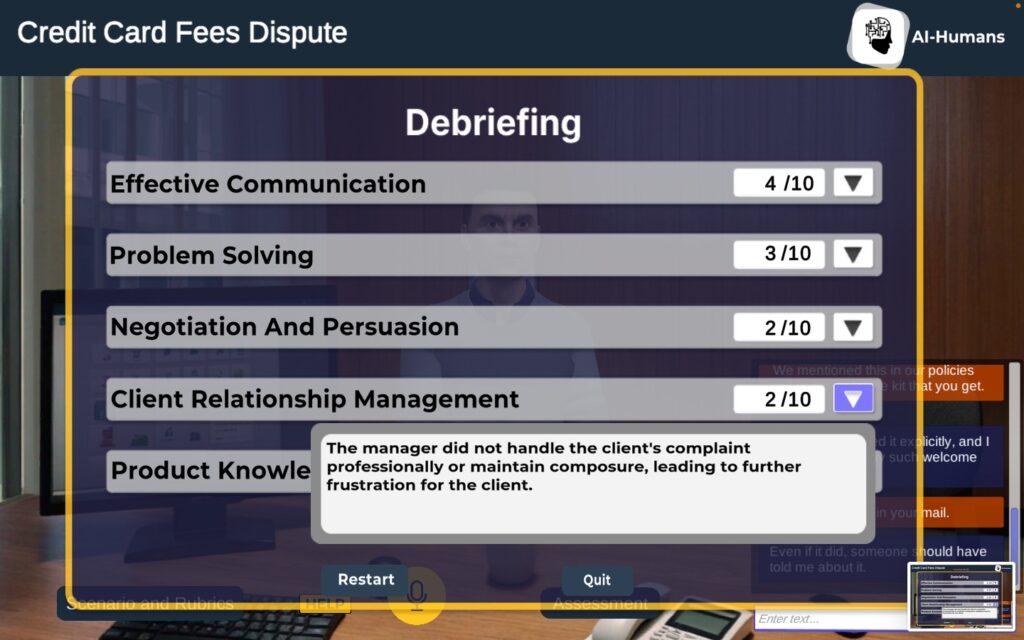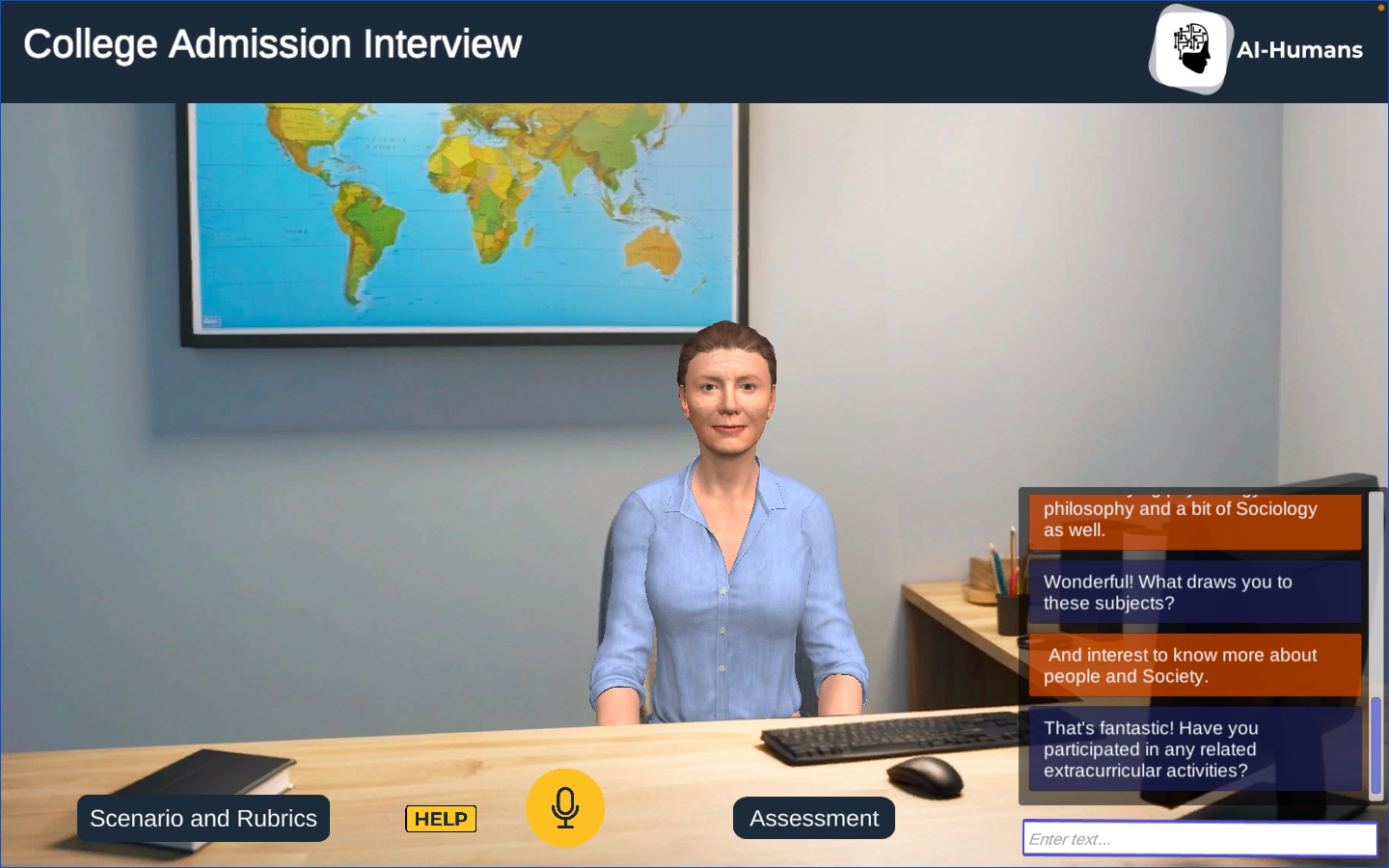Soft skills are very important in current society, in everything that one does whether young or old, or whether employed or not. However, not all are blessed with all the skills. The good news is that these skills can be acquired, developed, practiced and polished to be used at the appropriate moment. AI-based elearning methods are an excellent way to learn and refine these skills. These trainings need not be done in a room full of other participants but can be practiced at a chosen time and chosen place with a completely non-judgmental virtual character. Yes, for AI-Humans learners are provided with an avenue that enables them to relish self-paced learning that favors their style and interests. They could be an executive in a bank or a teacher interviewing students or even a student preparing for a group discussion. AI created characters will ensure that you get the best out of you.
What is personalized learning?
Personalized learning involves content tailored to meet a learner’s ability, interest, and learning requirements. It is designed to encourage learners to complete all the necessary coursework at their own pace with full understanding before moving on. This curriculum adaptation program ensures the syllabus, and resources are in line with learners’ interests and real-life relevance. The focus of personalized learning is always on understanding and competency instead of just completing tasks. This approach encourages peer-to-peer learning and collaboration while allowing learners to follow their own paths and goals. With AI in the picture, trainers get the opportunity to create highly adaptive learning material that can meet every learner’s unique needs.
Benefits of personalized learning
Following a personalized learning path arouses interest and an eagerness to learn. Learners engage with content focused on interest. This process helps the learners to improve on academic outcomes and gain mastery of skills. Learners learn at their own speed, supporting different paces and approaches to learning that enhance better retention since learning becomes more relevant and purposeful. Teachers benefit from focusing on the needs of each learner, which enhances the bond between teacher and learner. Personalized education promotes an effective learning environment.
Evolution of personalized learning
Traditional education theories have centered on providing individualized instruction to meet the unique needs of learners. The integration of computers and other digital tools has made it possible to design adaptive learning systems and deliver personalized content. Learners engage with content focused on interest. This method involves letting learners take charge of their own educational paths and styles while accommodating various learner populations to promote inclusivity in education. In recent years, usage of AI in personal learning programs has grown exponentially worldwide, and all big institutions of the world are exploring various models or tools.
Role of AI in personalized learning
Artificial Intelligence (AI) has been revolutionizing learning methods. AI-powered platforms can adjust difficulty levels by assessing learner performance in real-time for optimized outcomes. AI provides a personalized learning experience via instant feedback and guidance. It mines educational data to provide insights for teaching strategies and learner outcomes. AI enhances accessibility using text-to-speech, image generation and other adaptive technologies while automating administrative tasks like grading and scheduling, saving an educator’s time.
When it comes to personalized learning, AI can recommend resources and activities tailored to each learner. AI can identify the strengths and weaknesses of every learner and offer a wealth of personalized learning resources.
With the ability to deliver instant feedback, learners are brought face-to-face with their performance immediately. Learners get a fair idea of what accounts to good performance and what areas need improvement.

AI based learning also introduces gamification, adding an element of fun to learning. Interacting with a character. Having lifelike conversations can be a thrilling experience that helps enhance skills and capabilities. It inspires learners. Enhances the enjoyment of the learning process. AI constantly adapts based on interactions and feedback refining its recommendations and tailoring learning experiences as learners progress with input, from educators.
Comparison of non-AI methods and AI methods
Non-AI Methods: In the traditional learning method, teachers personalize learning based on their observations. The use of educational tools helps to adapt to evolving educational needs and technological advancements. They must manually do the grading and assessments. The whole process heavily relies on teacher interventions which in turn relies on limited data analysis to assess learner performance and progress. Conventional approaches place importance on the teacher as the provider of information and direction, giving weight to student-centered education and independence.
AI Methods: AI uses the collected data to personalize learning in real-time. It can easily scale to accommodate many learners. It can give instant feedback with an automated grading process. It creates unique learning paths for each learner, based on their needs. AI can easily adjust the learning process at any stage, creating a flexible curriculum. By integrating assistive technologies and adaptive interfaces, AI can promote inclusivity by supporting diverse learners, including those with disabilities, and ensure equitable access to educational resources and opportunities. It ensures that the quality or personalization does not get sacrificed. The use of educational tools helps to adapt the evolving educational needs and technological advancements.
The advantages of using AI for learning and development
Implementing AI to create personalized learning experience has multiple benefits that serve both trainers and learners. Some of the significant advantages include the following:
- AI makes the learning process more efficient by providing detailed insights into learner performance.
- It creates engaging and personalized learning experiences for everyone.
- The scale of personalized education grows, allowing multiple learners to be trained at the same time.
- AI algorithms can process large volumes of data quickly and accurately, leading to faster decision-making and improved operational efficiency.
- For businesses and organizations, AI reduces the operational costs.
- It can reduce errors as compared to human performance, and AI does things accurately with consistency.
Future of AI in personalized learning paths
AI in personalized learning paths is an exciting landscape that will continue to shape and grow as technology advances and our empathy for students’ needs deepens.
Combined with VR and AR it can provide highly immersive learning experiences where learners can practically engage with content and simulations that reflect their goals, interests.
AI based personal learning will support lifelong learning, this offers personalized guidance and resources beyond traditional schooling.
AI algorithms will ensure that personalized learning is fair and unbiased, which will promote teamwork, peer feedback, and cultural exchange.
Expanding AI access will enhance the quality of personalized education globally, driving innovation and the creation of new technologies and educational models suited to different cultural contexts and educational systems.
Artificial intelligence is revolutionizing how learning and teaching is done. The new trend of training approaches thus lies in the learner-centered approach and not the traditional teacher-centered approach to training. The training procedure using AI-Humans means that the learner is in the driver’s seat, meaning that he or she can steer their learning process as they desire while AI shifts content from the front end to the back end and vice versa to bring out the best in the learner.
AI-Humans is a SaaS-based platform that enables trainers to develop AI-powered soft skill training solutions within minutes. While all technical aspects of creating these AI-powered scenarios have been taken care of by the team, trainers can devote all their attention towards giving shape to highly effective and relevant training and provide learners with engaging and immersive training opportunities. Practicing soft skills is the best way to learn and this is precisely what AI-Humans is providing.

